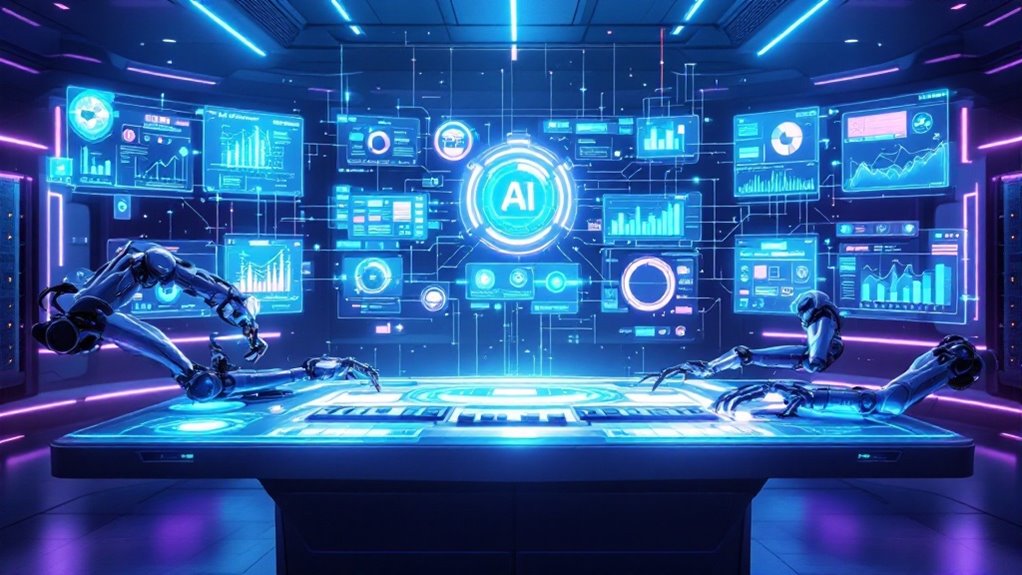Learning to use AI in 2025 isn’t about building killer robots—it’s mostly wrangling Python code, crunching numbers (hello, linear algebra and statistics), and training quirky little algorithms. Beginners should grab tools like Visual Studio Code, hop onto Coursera or YouTube for tutorials, and start poking around real-world data—think healthcare or chatbots, not movie plots. Ethical issues? Yeah, those matter too. Communication and teamwork skills go a long way. Stick around for hands-on steps and a few funny facepalm moments.
Step right into the world of artificial intelligence—no, it’s not all killer robots and Hollywood drama (though who doesn’t love a good Terminator reference?). For beginners in 2025, using AI is a bit more grounded, and a whole lot less likely to involve world domination. Let’s break down what actually matters, minus the sci-fi hype.
First, the basics. AI is about crunching data with algorithms to achieve specific goals. *Think less Skynet, more helping your phone guess what you want for dinner.* You’ll bump into terms like machine learning (teaching computers to predict things) and neural networks (which, despite the name, are not actual brains). These are the real engines behind things like visual recognition apps or the spam filter in your email. If you’re looking to start, there are over 1,700 data science courses available online, making it easier than ever to find beginner-friendly paths.
Mastering AI doesn’t require a PhD in quantum physics, but you do need some foundations:
- Mathematics: Linear algebra, calculus, and probability. Yes, the stuff you pretended to pay attention to in high school.
- Programming: Python is the language of choice. If you can “print(‘Hello, world!’)”, you’re halfway there (sort of).
- Statistics: Knowing when your data actually means something, or when it’s just lying to you.
- Data Analysis: Because AI eats data for breakfast.
Setting up to code AI? You’ll want:
- A solid IDE, like PyCharm or Visual Studio Code.
- Virtual environments (hello, conda) to keep projects tidy.
- Databases for all that precious data.
- Collaboration tools like GitHub—because teamwork makes the AI dream work.
Now, the fun part: real-world uses. AI’s in healthcare, finance, education—analyzing data, running chatbots, or automating tasks you’d rather not do yourself. But don’t forget the ethics—making sure your model isn’t accidentally becoming an evil villain. Finding your AI specialization early can help focus your learning path and make the journey less overwhelming.
Learning? Resources are everywhere:
- Coursera, YouTube, DataCamp, and even books (remember those?).
- Forums for when you break things (because you will).
Finally, to really thrive, blend sharp tech chops with communication skills. Because building the next great AI should be a team sport, not a solo sci-fi episode.









